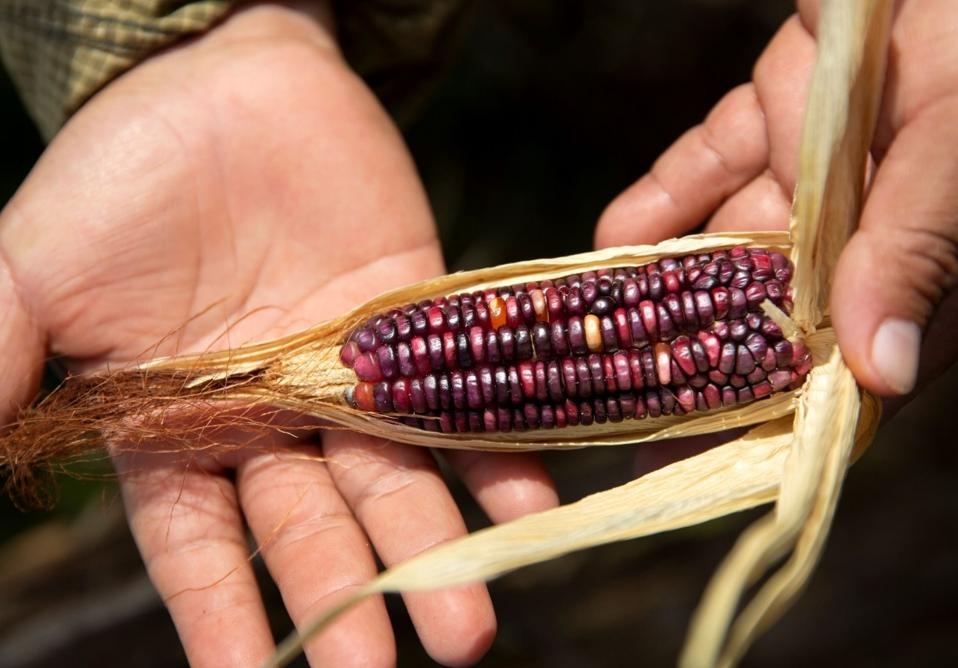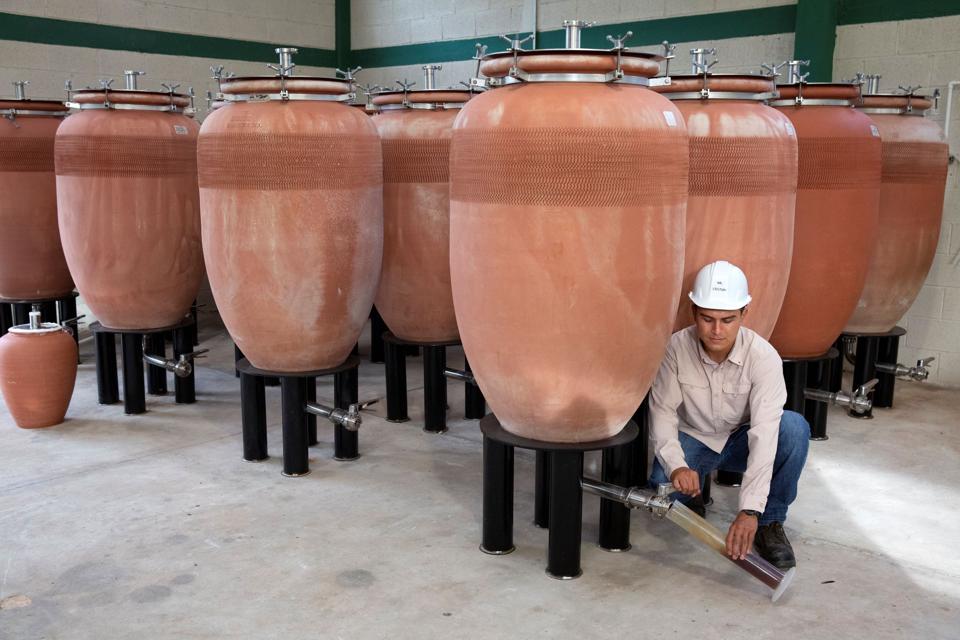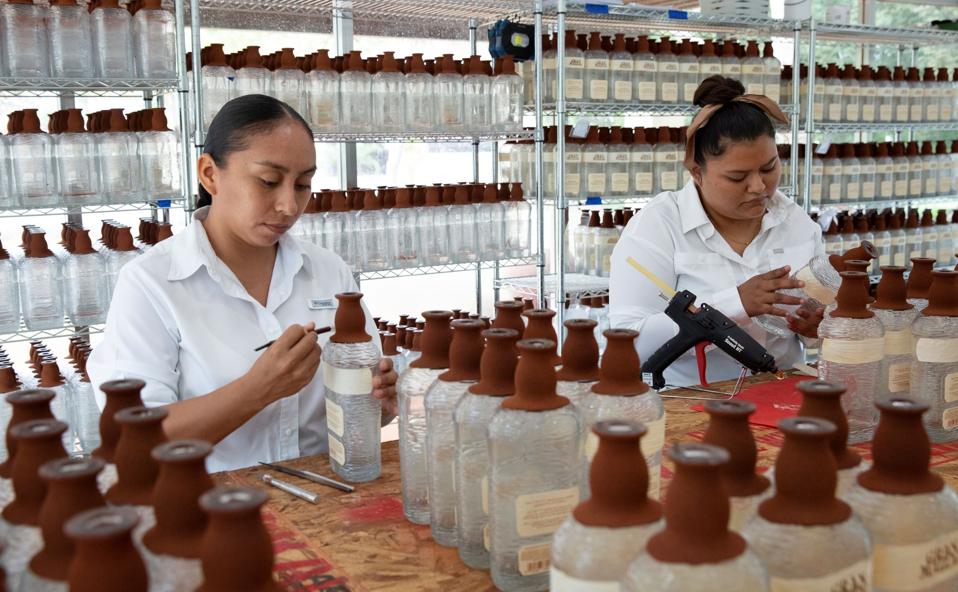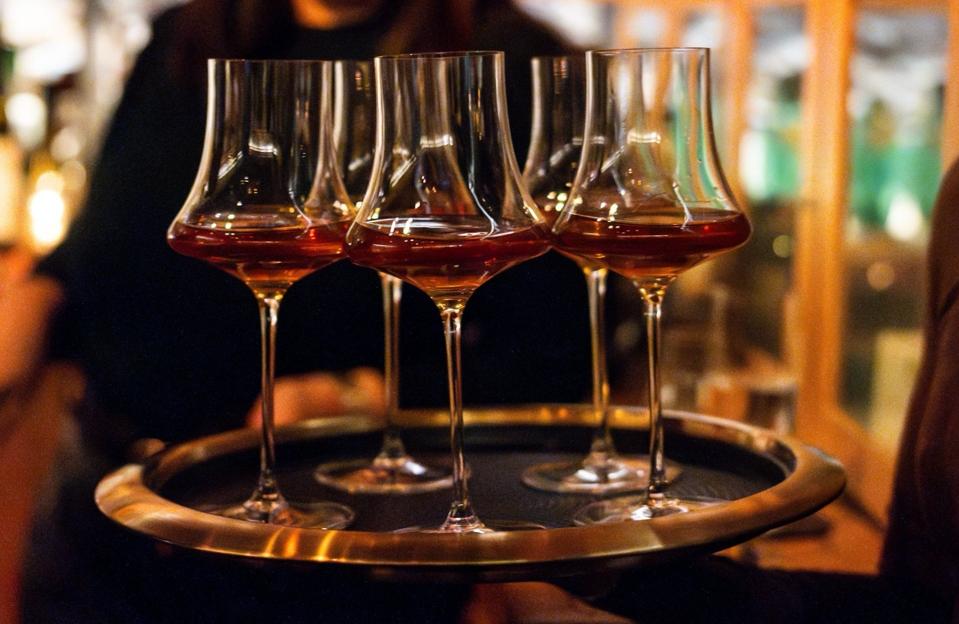Mexico, the birthplace of corn, is witnessing a new wave of innovation in whisky, as a distillery just outside Mérida, Yucatán, is challenging traditional notions of what corn-based spirits can be. While whisky has evolved in both geography and profile over the last century, Gran Maizal is writing a new chapter by returning to corn’s ancient roots.
Set within an impresive scientific research campus and co-founded by Gonzalo de la Pezuela and Cesar Ayala, Destilería La Víbora provides a lifeline for ancient corn varieties while serving as a hub for innovation. Gran Maizal is the first product developed and launched by the distillery, whose mission is to promote maize biodiversity by supporting small scale local agriculture through the exclusive use of ancient varieties of corn, grown by farmer partners from the nearby region.
De la Pezuela, a 20-year veteran of the spirits industry, spent a great portion of his career developing new products and brands across global markets while managing a variety of whisky and tequila portfolios. Ayala is an innovation and operations expert originally from León, Guanajuato, who specilizes in effective operating systems, bringing precision and excellence to La Víbora’s production and business processes.
Ancient heirloom Mexican corn of various colors, including the nal t’eel variety, are used in making … [+]
Benedicte Desrus
“The character of this whisky emanates from thousands of years of Mesoamerican culture passed on from one generation to the next,” explains de la Pezuela. “We founded the company with a mission of promoting the biodiversity of maize in Mexico and, in our case, using varieties from the Yucatan Peninsula including Nal T’eel, which is recognized as one of the oldest.”
For Ayala, the foundation of Gran Maizal begins in the fields. “We are devoted to agricultural preservation and work directly with farmers throughout the Yucatán Peninsula,” he explains. “Prioritizing the biodiversity of corn allows us to accomplish two crucial goals: supporting small farmers in the region while creating delicious whisky that embodies the most cherished ingredients from ancient Mexico.”
For more than 5,000 years, the Maya and other Mesoamerican civilizations cultivated maize, revering it as a sacred element in their mythology and as the basis of their sustenance. Today, few varieties of ancient heriloom corn remain viable for large-scale agriculture, leaving them succeptible to disappearing.
Gran Maizal purchases ancient heirloom corn varieties grown by local small farmers.
Benedicte Desrus
Gran Maizal purchases these crops directly from the families that grow them, paying a fair price and helping the local economy while ensuring these varieties of corn continue thriving.
“Gran Maizal whisky was born from the realization that the oldest varieties of corn had disappeared from cultivation due to their lack of economic viability,” says de la Pezuela. “As whisky and bourbon enthusiasts, we recognized that, while corn is a component of these spirits, it had not been given the appreciation that it truly deserves. This sparked our mission to put the farmers and character of ancient corn varieties front and center.”
Gran Maizal’s unique approach to distilling also distinguishes them among global whisky producers. They toast a portion of the corn and nixtamalize it to enhance the flavor before fermenting through a proprietary process that uses natural yeast. Distilling in a copper pot still removes undesirable compounds, resulting in a clean yet distinctive spirit.
Gran Maizal uses custom-made terracotta anforae to age the whisky.
Gran Maizal
Perhaps most unique is Gran Maizal’s aging process, which uses specially designed porous terracotta amphorae. These bespoke handmade vessels preserve the character of the nixtamalized corn, balancing the flavor with toasted wood and enhancing aromatics.
As they finish their whisky, they add cured vanilla pods from Papantla, Mexico’s hub of vanilla production since pre-Columbian times, and cacao nibs of the Almendra Blanca variety. When combined, the subtle bitterness of cacao harmonizes with the sweetness of corn and the floral notes of vanilla, creating a flavor profile that speaks to the region’s rich agricultural and culinary heritage. It tastes of fresh corn with hints of warm corn tortillas, with a delicate and light mouthfeel that lends itself to mixing but is also delightful sipped neat.
Even the packaging speaks to the Yucatec roots of Gran Maizal whisky. The custom-made glass bottle is embossed patterns that represent the water from the underground cenote from which the whisky is made. It is adorned with real terracota and corn husks, both crucial elements in the making of the spirit. Women from the adjacent community finish decorating and labeling the bottles one at a time, and the bottling process is also done by hand.
The bottles for Gran Maizal whiskey are labeled and decorated by hand by women from the local … [+]
Gran Maizal
Gran Maizal whisky recently launched in Texas, and is now available in retail stores, bars, and restaurants across the state. It is also available for purchase nationally directly on the website.
De la Pezuela says Texas was the natural choice for their U.S. launch. “It’s a fitting development – bringing a new whisky from Mexico to a large community where so much history and culture are shared, and many of the same drinks and gastronomy are enjoyed,” he says. “Texas is also one of America’s most dynamic spirits markets.”
For those looking to experience Gran Maizal whisky right where it’s made, Destilería La Vibora will soon be welcoming visitors to its integrated community of farmers, distillers, scientists, and whisky enthusiasts to learn more about how ancient corn is fueling a modern whiskey movement.
OLD MOTHER CORN
Created by Ben Robinette at Kinfolk Lounge & Spirits Library in Austin, Texas
This drink is what is referred to as a “scaffa,” which is a type of beverage composition that calls for both no chilling and no apparent dilution. No ice or stirring are necessary for the drink’s preparation. It is served at room temperature in an unchilled vessel.
The Old Mother Cocrn cocktail is a scaffa style cocktail created by by Ben Robinette at Kinfolk … [+]
Kennedy Box
“The three corn varieties that are proudly shared on the front label of Gran Maizal led me down pathways of learning until I encountered an extraordinary work of contemporary Maya literature. It is titled U tsikbalo’ob XNuk Nal / Los cuentos de la Abuela Mazorca (Tales of Old Mother Corn), authored by José Manuel Tec Tun, and written in both Spanish and Yucatec Maya. The story’s five chronological chapters demonstrate the powerful relationship that has symbiotically developed between Mesoamerican peoples and maize in significant agricultural systems like the milpa.”
- 1 oz / 30 ml Gran Maizal Corn Whisky
- 1 oz / 30 ml Laurent Cazottes “Tomates” Organic Tomato Liqueur
- .5 oz / 15 ml St. George Spirits “Aqua Perfecta” Basil Eau de Vie
- .33 oz / 10 ml Nixta Licor de Elote
- 12 drops Scrappy’s Black Lemon Bitters
- 7-12 drops absinthe, to taste — recommendation of Jade Liqueurs C.F. Berger (Verte Suisse 1898) Absinthe Supérieure
- 7 drops 10% saline solution (1 part kosher salt to 9 parts filtered water, by weight)
Assemble the ingredients in a mixing glass or mixing tin without ice. Stir the ingredients gently with a barspoon or just swirl the mixing container a few times to incorporate everything. Pour the contents carefully into an appropriately sized vessel of your choice for the volume of the drink (about 85 ml, or a little under 3 oz). There is no garnish.





